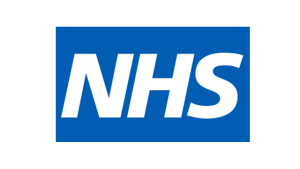Covid-19 Update regarding Immunisations
NHS Immunisations FAQs (for public)
Why aren’t you stopping routine immunisations?
Whilst preventing the spread of COVID-19 and caring for those infected is a public health priority, it is very important to maintain good coverage of immunisations, particularly in the childhood programme. In addition to protecting the individual, this will avoid outbreaks of vaccine-preventable diseases that could increase further the numbers of patients requiring health services.
Should people/babies really still go and be immunised at their GP surgery even though there is a risk that by doing this they may be infected with COVID-19?
Your GP surgery or health clinic will take all possible precautions to protect you and your baby from COVID-19. People should still attend for routine vaccinations unless they are unwell (check with your GP whether you should still attend) or self-isolating because they have been in contact with someone with COVID-19. In these circumstances please rearrange your appointment. Vaccines are the most effective way to prevent against other infectious diseases. Babies and toddlers in particular need vaccinations to protect them from measles, mumps, rubella (MMR), rotavirus, diphtheria, whooping cough, meningitis, polio, tetanus, hepatitis B, TB and more.
What are “routine” childhood immunisations?
The national immunisation programme is highly successful in reducing the incidence of serious and sometimes life-threatening diseases such as pneumococcal and meningococcal infections, whooping cough, diphtheria and measles. It remains important to maintain the best possible vaccine uptake to prevent a resurgence of these infections.
Practices will be prioritising the following:
- Routine childhood immunisations, from 8 weeks up to and including vaccines due at one year of age including first MMR and hepatitis B for at risk infants;
- Pertussis vaccination in pregnancy;
- Pneumococcal vaccination for those in risk groups from 2 to 64 years of age and those aged 65 years and over (subject to supplies of PPV23 and clinical prioritisation).
Neonatal BCG and all doses of targeted hepatitis B vaccines should also be offered in a timely manner.
If you are not doing school age immunisations, isn’t there a risk that we will see big increases in the diseases those children are normally vaccinated against?
School aged immunisations will be rescheduled. UK government has provided clear public health advice on specific measures to take to prevent further Coronavirus cases which includes social distancing. On this basis, community clinics are not recommended given that this is likely to increase the risk of exposure to the virus.
Do GP surgeries really still have the time to do immunisations?
Practices will be busy responding to the COVID-19 pandemic and the routine childhood immunisation programme will continue to play an important role in preventing ill-health through causes other than coronavirus infection.
How important is it that you get your immunisation at the time you are called? Is there a risk in delaying for a few months and if there isn’t then why don’t we stop and reduce the risk of contracting COVID-19 through a visit to the general practice?
Parents should be informed that despite the COVID-19 pandemic, it is important that routine childhood immunisations are started and completed on time. This will help protect the infant or child from a range of serious and sometimes life-threatening infections. Whilst infections such as invasive pneumococcal and meningococcal disease are now much reduced in incidence, this has only come about because of high levels of vaccination. To prevent resurgence, infants still need protecting through vaccination. Pertussis continues to circulate at elevated levels and it remains important that pregnant women are offered the pertussis vaccine, and that their babies start receiving protection against this, and other infections, from 8 weeks of age.
There is a shortage of liquid infant paracetamol which is often used by parents to help manage a baby’s reaction to their routine immunisations so won’t parents stop bringing their babies because of this?
Vaccination to protect from serious conditions should not be delayed. Whilst parents should continue to try to obtain and administer infant paracetamol if possible, infant vaccines can and should still be given even if it is not possible to give prophylactic paracetamol.
Where parents have been unable to obtain infant paracetamol, the following advice is for clinical staff in primary care and parents.
- Fever can be expected after any vaccination but is more common when the MenB vaccine (Bexsero) is given with the other routine vaccines at eight and sixteen weeks of age.
- In infants who do develop a fever after vaccination, the fever tends to peak around six hours after vaccination and is nearly always gone completely within two days.
- Ibuprofen can alternatively be used to treat a fever and other post-vaccination reactions. Prophylactic ibuprofen at the time of vaccination is not effective. Ibuprofen is not licensed for infants under the age of 3 months or body-weight under 5 kg. However, the BNF for Children advises that ibuprofen can be used for post-immunisation pyrexia in infants aged 2 to 3 months, on doctor’s advice only, using 50 mg for 1 dose, followed by 50 mg after 6 hours if required. See the BNF for Children for more details https://bnfc.nice.org.uk/drug/ibuprofen.html#indicationsAndDoses
- There have been concerns about the use of non-steroidal anti-inflammatory medications (NSAIDs) such as ibuprofen, in relation to COVID-19. This is being investigated by the Commission on Human Medicines and NICE. NHS England have advised in the interim for patients who have confirmed COVID-19, or believe they have COVID-19, that they use paracetamol in preference to NSAIDs. If parents cannot obtain their own supply of infant paracetamol and it has not been possible to prescribe it, as their baby will have been assessed as being well before vaccination, providing their baby has fever only and no symptoms consistent with COVID-19 infection, consideration should be given to using ibuprofen as described above. https://www.cas.mhra.gov.uk/ViewandAcknowledgment/ViewAlert.aspx?AlertID=103001
- Information about treating a fever in children is available from the NHS UK webpage “Fever in children” at www.nhs.uk/conditions/fever-in-children/
- If an infant still has a fever 48 hours after vaccination or if parents are concerned about their infant’s health at any time, they should seek advice from their GP or NHS 111.
- The diseases that the vaccines protect against are very serious and therefore vaccination should not be delayed because of concerns about post-vaccination fever.
How will parents know when their babies have a temperature after their regular immunisations whether it is an expected reaction or COVID-19?
Parents should be advised that the vaccines given may cause a fever which is usually resolved within 48 hours (or 6 to 11 days following MMR). This is a common expected reaction and isolation is not required, unless COVID-19 is suspected.
When the MenB vaccine (Bexsero) is given with other vaccines at 8 and 16 weeks of age, fever is more common. Where parents are able to obtain liquid infant paracetamol, they should follow existing PHE guidance on the use of prophylactic paracetamol following MenB vaccination available at: https://www.gov.uk/government/publications/menb-vaccine-and-paracetamol
Indications to date suggest that COVID-19 causes mild or asymptomatic illness in infants and children. As has always been recommended, any infant with fever after vaccination should be monitored and if parents are concerned about their infant’s health at any time, they should seek advice from their GP or NHS 111. Post-immunisation fever alone is not a reason to self-isolate.
This advice applies to recently vaccinated people of all ages.
Any infant with fever after vaccination should be monitored and if parents are concerned about their infant’s health at any time, they should seek advice from their GP or NHS 111.
Should people aged 70 and over attend the practice for immunisation?
It is recommended that PPV23 continues to be offered to eligible groups, including those aged 70 and over who have not previously been vaccinated. If an eligible individual aged 70 years and over attends the practice for other reasons, the opportunity to vaccinate them should be used. This may also present an opportunity to vaccinate them against shingles if they are eligible.

